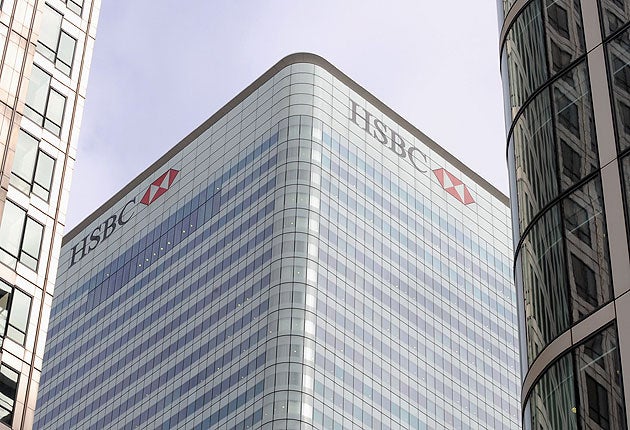Money Insider: Is this the start of a mortgage war?

Your support helps us to tell the story
From reproductive rights to climate change to Big Tech, The Independent is on the ground when the story is developing. Whether it's investigating the financials of Elon Musk's pro-Trump PAC or producing our latest documentary, 'The A Word', which shines a light on the American women fighting for reproductive rights, we know how important it is to parse out the facts from the messaging.
At such a critical moment in US history, we need reporters on the ground. Your donation allows us to keep sending journalists to speak to both sides of the story.
The Independent is trusted by Americans across the entire political spectrum. And unlike many other quality news outlets, we choose not to lock Americans out of our reporting and analysis with paywalls. We believe quality journalism should be available to everyone, paid for by those who can afford it.
Your support makes all the difference.I had to do a double take when I saw the new HSBC mortgage deals sitting in my inbox this week. The interest rate of 1.99 per cent made me do exactly what HSBC are hoping it will do for customers – it left me scrabbling around to find out more. And that's when I discovered that it's a great rate, but only if you've got at least a 40 per cent deposit to put down.
There's also a sizeable booking fee of £1,199 to consider, which equates to £50 per month over the two-year term of the deal. If you're looking to borrow 75 per cent of the property value, the rate is higher but still very competitive at 2.49 per cent plus the same fee.
It is virtually unheard of for a mortgage to be launched with a sub-two per cent interest rate and, for that reason alone, the level of demand is likely to mean that the offer won't be around for long.
Whilst many experts are predicting that base rate will stay low for the remainder of 2009 and early 2010, the medium- to long-term picture is less clear. The decision to opt for a variable rate mortgage or a fixed rate mortgage comes down to the amount of flexibility you have in your budget. With a variable rate you could end up getting a cheaper deal now, but there's always the risk that rates will increase – unfortunately, nobody really knows when or by how much. With a fixed rate, at least you know for certain how much will be coming out of your bank account each month for the duration of the mortgage term.
This aggressive move from HSBC will hopefully kickstart what has become a pretty stagnant mortgage market and it'll be interesting to see how other lenders respond.
Increased ISA allowance for the over 50s
From 6 October, ISA limits will be raised from £7,200 to £10,200 for anyone turning 50 on, or before, 5 April 2010. As part of this change, the savings element that can be put into cash ISAs is increasing from £3,600 to £5,100.
This week, Yorkshire Building Society announced that all of its ISA savers over 50 can add to their existing accounts, including those with fixed rate ISAs. The society has also taken the unusual step of allowing savers to top up existing fixed rate ISAs even though such accounts may no longer be available to the public.
Many people have questioned whether the Government thought through introducing the increased allowance for over 50s halfway through a tax year – it will have proved an expensive and logistical nightmare.
It is possible smaller building societies will find the cost implications prohibitive, and some savers will be unable to make use of the additional allowance with their provider and will have to transfer their custom elsewhere.
Showing support for elderly savers when savings rates were at rock bottom was something the Government had to take seriously, however, the financial benefit for savers doesn't add up to a life-changing amount.
Alistair Darling said it would "enable those who have retired or are beginning to prepare for retirement to move taxed savings into a tax-advantaged ISA, rewarding those who have saved by improving their returns".
The bottom line is that if you invest your extra £1,500 from October to April at an average rate of 3 per cent, your total interest return will be £22.50 whereas if it was in a taxable savings account you would have received £18, so the tax benefit only amounts to £4.50.
Andrew Hagger is a money analyst at Moneynet.co.uk
Join our commenting forum
Join thought-provoking conversations, follow other Independent readers and see their replies
Comments